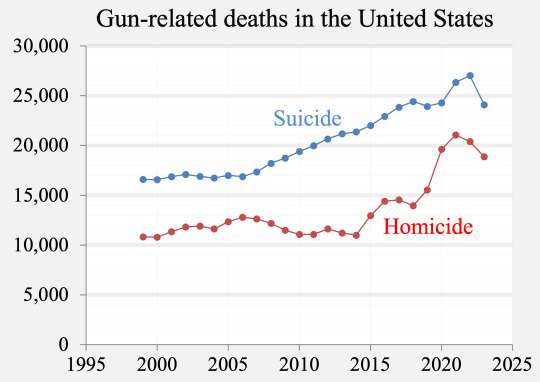Text
The rotten core of gun violence in America #GunViolence

As I was leaving this year’s Super Bowl parade in Kansas City, I debated whether to attend the rally afterward. Because I had gone to the rally last year, I stopped by my house to see my mom and watch the parade coverage on the local news.
In the hours that followed, I watched in numbed horror as a space of joy and celebration, one I had just been a part of, devolved into panicked chaos. Multiple people exchanged gunfire, wounding several and killing Lisa Lopez-Galvan, a local mother and DJ.
I received multiple messages from friends asking if I was safe and alive. I want to say I couldn’t have ever fathomed receiving such messages, but I had fully anticipated it to happen at some point in my life. I expect to receive more at some point in the future.
The community conversations that followed served as the next iteration of the same tired conversation about this crisis we have been having for years. Some blamed it on the guns and their defenders; others blamed it on gangs and stupid choices; others still blamed it on mental illness, and so on.
If we’re still having these same conversations, this problem isn’t reducible to any one combination of these things. If we are to make progress on gun violence in this country, we need to interrogate the core of this crisis.
America has a disturbing fixation on guns. We have nearly 400 million of them in civilian hands alone – more than one firearm per person in America.
What many fail to consider is that, historically, as with many punitive laws, gun control legislation has been disproportionately applied to Black people and Black communities.
Still, we do have a profoundly bizarre attachment to our weapons. This attachment is unique amongst our economic peers and supported by our powerful gun lobby, preventing even the most basic regulations — but only to the extent that it affects white people.
Others argue that guns don’t kill without someone there to pull the trigger.
There are roughly 21,000 gun-related homicides annually as of 2021, showing petty gun crime, even among registered firearm owners, kills.
The solution isn’t more punitiveness. That created this problem in the first place.
Rhetoric about gangs and gang violence is often an excuse to warehouse Black people in prisons rather than to protect people in communities with significant gun violence.
After all, there are plenty of legitimate reasons someone may want to acquire a gun.
Others still will call mass shootings the work of sick individuals and call for more mental health treatment.
This isn’t a crisis caused by the pathology of just a few people: sick individuals don’t exist in a vacuum outside of the conditions that created them.
Even then, people with mental illnesses are often more of a danger to themselves than others. It is important to remember that more than half of gun deaths in the U.S. annually are suicides.
If the solution to this crisis were reducible to any one of these dimensions, we would not be stuck having the same cliché conversations every time a massacre occurs.
This crisis is not the product of something on the surface; it is attributable to a deep rot within the system that produced it. Our gun culture is a direct product and extension of our broader culture.
To solve the crisis, we need to ask ourselves uncomfortable questions about what could enable and empower someone to justify a shooting, what has been normalized that should not be, what is a given person’s relationship to guns and what structures of power allow this crisis to continue unabated.
Without directly addressing the individualistic, avaricious, crumbling society in which these massacres take place, we are treating the symptoms, not the infection.
I am tired of bearing witness to these massacres. If you are too, the next time news of one breaks, rather than put it through the motions and move on, instead, if you can, take the time to consider how such a thing is made possible. Dig out the rotten core and end our perpetual massacre.
1 note
·
View note